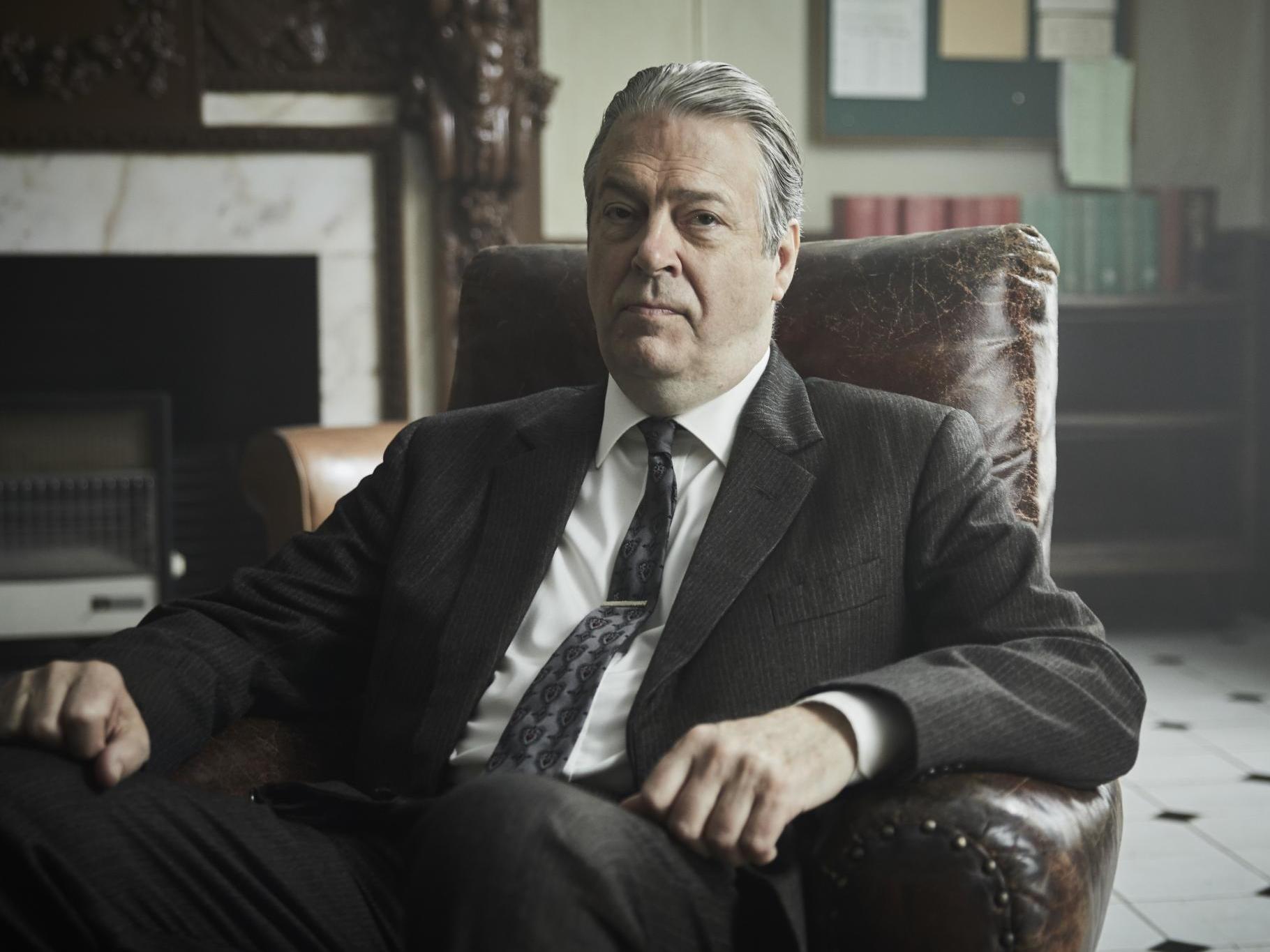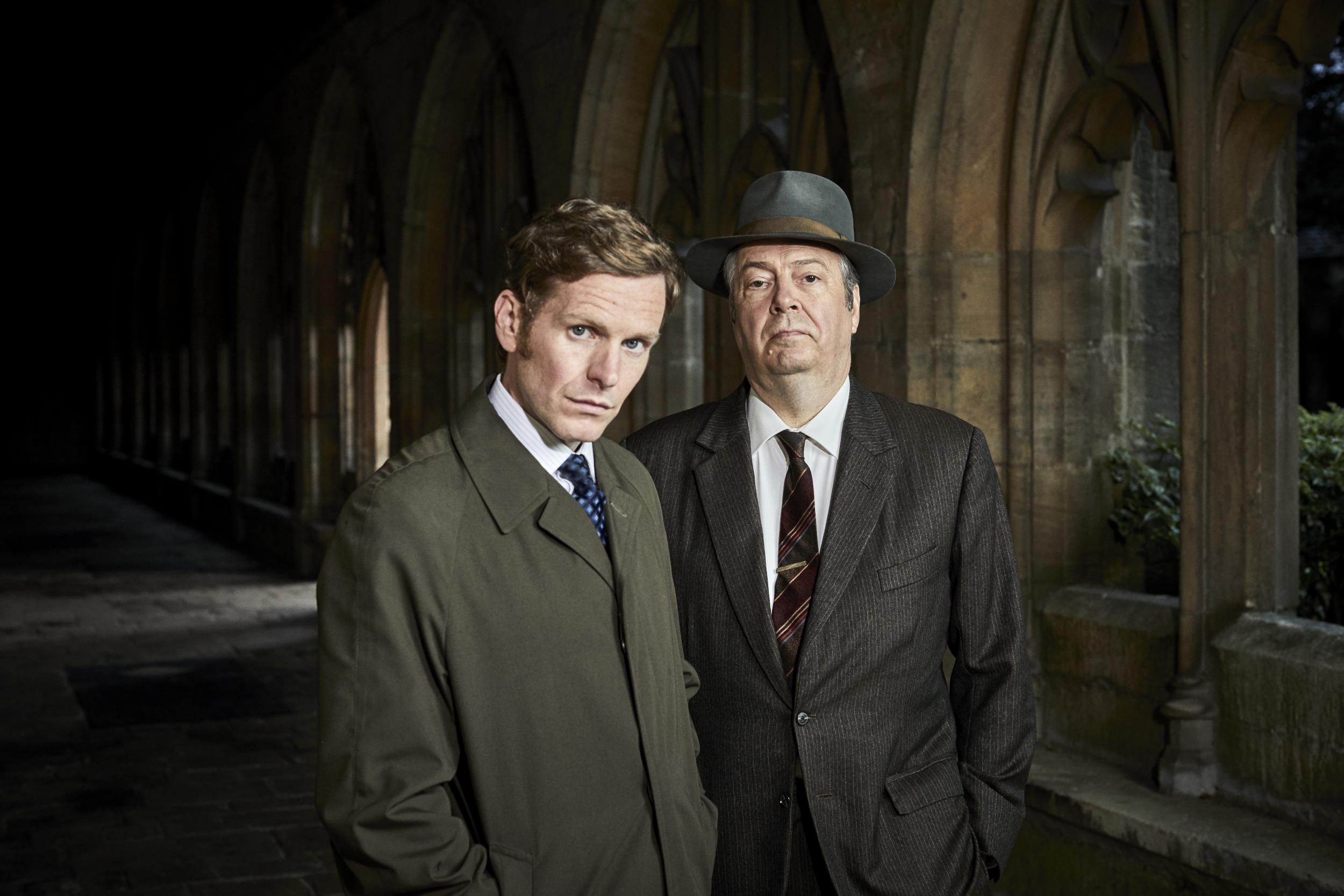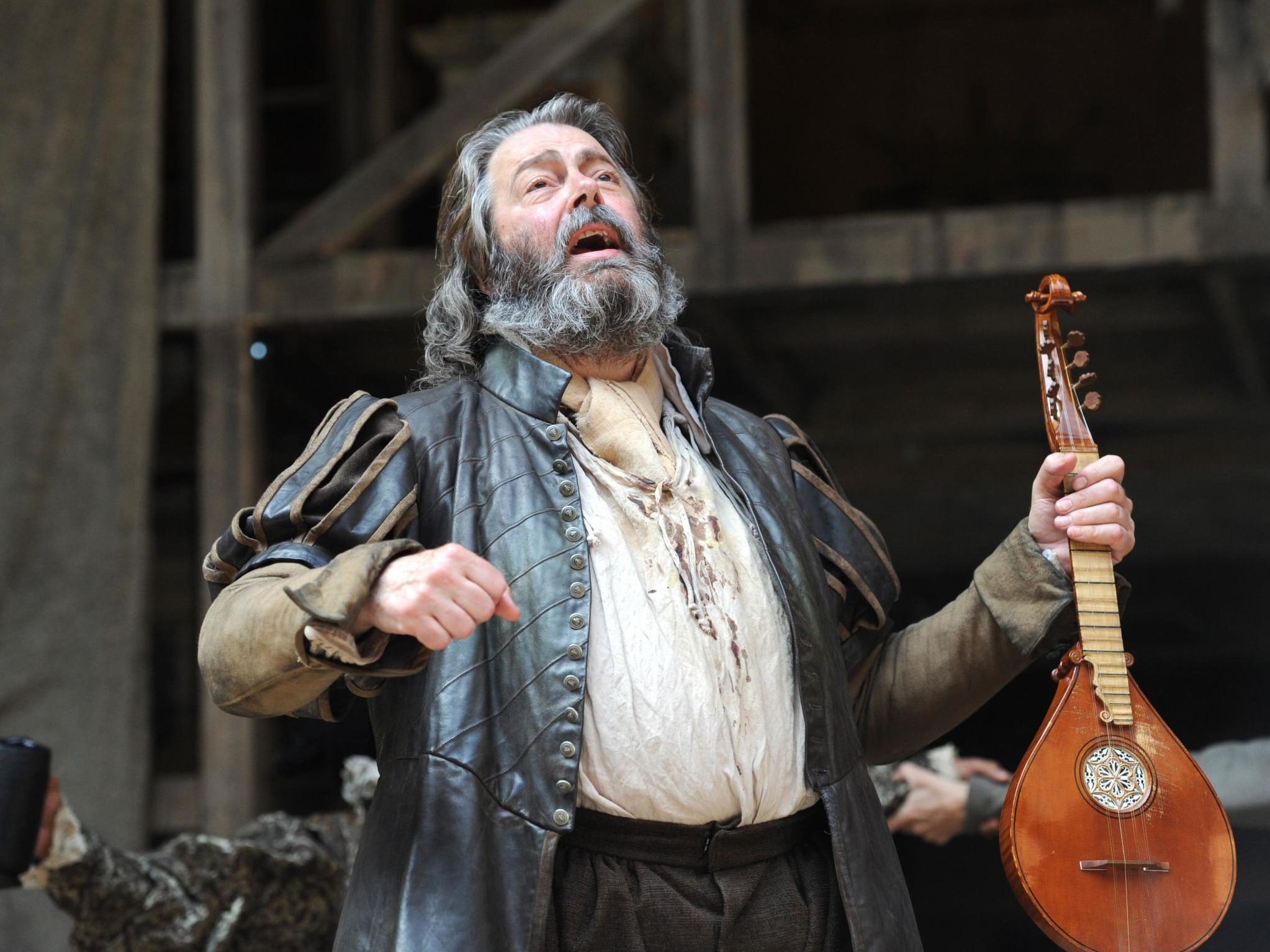Roger Allam: ‘People always use power to try to sleep with who they want – women as well as men do that’
The award-winning stage actor and star of ‘The Thick of It’ talks to Ellie Harrison about the new series of detective drama ‘Endeavour’, the sexual culture of the theatre, his shock at the Weinstein scandal, and why British politics is now beyond parody


Your support helps us to tell the story
From reproductive rights to climate change to Big Tech, The Independent is on the ground when the story is developing. Whether it's investigating the financials of Elon Musk's pro-Trump PAC or producing our latest documentary, 'The A Word', which shines a light on the American women fighting for reproductive rights, we know how important it is to parse out the facts from the messaging.
At such a critical moment in US history, we need reporters on the ground. Your donation allows us to keep sending journalists to speak to both sides of the story.
The Independent is trusted by Americans across the entire political spectrum. And unlike many other quality news outlets, we choose not to lock Americans out of our reporting and analysis with paywalls. We believe quality journalism should be available to everyone, paid for by those who can afford it.
Your support makes all the difference.Roger Allam used to be a member of a feminist theatre collective. The 66-year-old, who starred as wet Tory Peter Mannion in The Thick of It and now plays the lugubrious DCI Fred Thursday in Endeavour, was part of The Monstrous Regiment in the 1970s, which was based in a Camden squat.
It was named after the misogynist 16th-century tract The First Blast of the Trumpet Against the Monstrous Regiment of Women. “The women who founded the collective had got a bit p***ed off with the macho side of political theatre groups and wanted to set up a way of working where the majority of roles were for women,” says Allam over the phone, in that unmistakeable warm, syrupy voice.
“Our offices and rehearsal rooms were in a squat. I think I got the job because I can play various musical instruments and sing.” The young Allam, fresh from studying drama at Manchester University, could not have known he would go on to become one of Britain’s most distinguished stage actors. “It was radical because it was run by a majority of women. But that didn’t feel weird – in my family I had two older sisters, so I was used to being bossed around.”
He recalls one cabaret set that “separatist feminists did not approve of” – “It was about a man shouting at women in the street, ‘Cheer up darling! Cheer up!’ all that kind of stuff,” he says. “Eventually this man became so outraged that women weren’t cheering up that he simply got a gun to go around and threaten people with.”
Allam is astonished that men still yell at women in the street, ordering them to smile, and he was bewildered by the avalanche of sexual assault stories that came out of Hollywood following Harvey Weinstein’s notorious fall from grace in 2017. “I was deeply, deeply shocked to discover that lots of women have commonly experienced men pinching their arses and putting their hands up their skirts,” he says. “I don’t understand how anyone would feel the right to do that. In the theatre, there were plenty of people having sex all over the place – wanting to, and doing it quite successfully – but male violence? Personally, I have witnessed very little. Very, very little.”
He pauses. I envisage his lustrous eyebrows furrowing at the end of the line. “People always use power, that’s the unsurprising thing,” he says, eventually. “They use it to try to sleep with who they want to sleep with – women as well as men do that – but I don’t understand violence.”
“In an utterly naive way, part of me thought that we would go on being more equal and behaving better with each other,” says Allam. “But that is manifestly not the case.”
Alongside his theatre triumphs – he was Les Miserables’ original Inspector Javert on the London stage and has won two Oliviers (for his Falstaff in 2011 and for Privates on Parade in 2002) – Allam has built a successful career on television. This will be his seventh series of Endeavour. He is evidently fond of the ITV drama, but says he would “never have done it” had he known it would be an eight-year commitment.

Over time, he has bonded with his character Thursday, a modestly heroic detective and Second World War veteran. “It’s the first time I’ve ever played someone over a long period of time and that’s surprisingly interesting,” says Allam. “You get old with the character and you don’t know the end of the story like you do when you take on a play or a film. You know as much as you do in life, really, about what’s going to happen to yourself.”
We rejoin Thursday and the young Inspector Morse (Shaun Evans) in the 1970s, the decade of package holidays, the oil crisis, and the three-day week. Allam – who was born in a rectory in 1953; his father was a vicar – says being transported back to that time was a curious exercise because he got to see it through the eyes of his parents, who would have been a similar age to Thursday back then. “My parents both came from working-class backgrounds, my father particularly,” he says. “He came from a very poor family, 12 of them lived in a little three-bedroom terrace house in Fulham, it was very small with an outside loo and a tin bath on the scullery wall.”
Allam suspects both his parents had elocution lessons because “to be well spoken was a way out of class, a way upwards”. “They were education obsessed,” he says, “so they thought it would be a good idea for me to go to this strange boarding school where you only paid a tiny amount according to how much you earned.”
It was Christ’s Hospital in West Sussex, which Allam describes as “like Eton for paupers”. When Allam was there half a century ago, the schoolboys dressed in Tudor uniforms consisting of long blue coats and mustard yellow socks – and the class of 2020 are subject to the very same humiliation now. “We also marched into lunch to a military band,” sighs Allam.

His time at Christ’s Hospital was “utterly miserable to begin with” because of the “bullying culture” in the house he was in. “It was the students, really,” he says, “but the teachers could also beat you with a cane. When you’re boarding, there’s no escape.” He remembers being terrified after seeing one boy getting thwacked over the head with a wooden boot brush for not addressing an older student as “Sir”: “It made me very afraid.”
There is a long silence – one of many during our conversation – as Allam breaks off in contemplation. I imagine those eyebrows twitching once more. When he starts to speak again, his voice is softer.
“I think I caught the fag end of the violent atmosphere in the particular house I was in,” he says. “The whole atmosphere of the place loosened up through the Sixties, possibly because I was getting older and more at ease.”
It was also at the school that, aged 13, he found himself truly connecting with a play for the first time: a house production of Harold Pinter’s The Birthday Party.
“I was mesmerised by it,” he says. “I completely understood it because, like the characters in the play, I was also in this strange place with mysterious rules and an atmosphere of violence underneath everything.”

He would go on to display a range that would take him from playing Adolf Hitler in David Edgar’s Albert Speer to Leonardo da Vinci in The Giant. On television, he has proved to be as at home in Game of Thrones (he was Magister Illyrio Mopatis) as in the world depicted in Armando Iannucci’s imagining of the banal inner workings of government.
In The Thick of It, Allam’s world-weary MP was baffled that society expected him to be able to tweet let alone feign political correctness. One particularly memorable scene for someone of my profession was when Mannion, who was being driven away from a group of journalists, told his chauffeur: “Run those f***ers over! Fifty quid for every one you maim!”
Allam laughs when I relay the line to him. Does he think The Thick of It would be made today, or is modern politics too farcical to satirise?
“It is difficult to parody it when you’ve got the person who’s now our prime minister escaping into fridges,” says Allam, referring to when Boris Johnson went to extreme measures to avoid a TV interview ahead of the Christmas election. “People are just repeating mantras like, ‘get Brexit done’, ‘strong and stable’, ‘dither and delay’. There must be a way of satirising it, and I long to see it, but it’s gone beyond The Thick of It.”
The new series of ‘Endeavour’ begins at 8pm on Sunday 9 February on ITV
Join our commenting forum
Join thought-provoking conversations, follow other Independent readers and see their replies
Comments